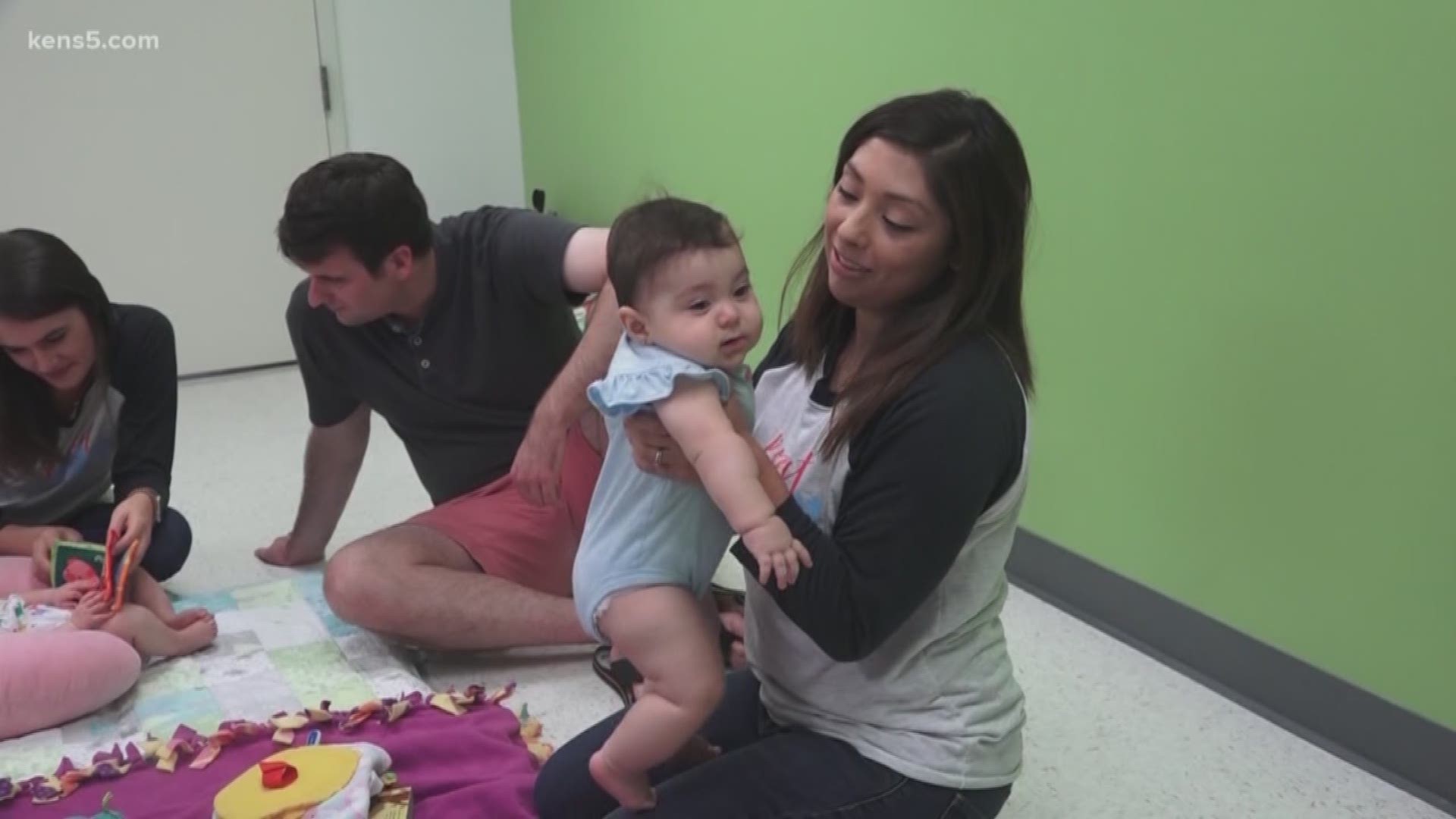San Antonio researchers from Children's Hospital of San Antonio, University of Texas San Antonio, Baylor College of Medicine-Pediatrics of San Antonio, and the Autism Treatment Center say that they want to help parents spot and treat autism earlier. They're working on a project that could help parents diagnose and treat symptoms of autism at a much younger age.
"A new way to identify children at risk as early as 3 months old," said Dr. Leslie Neely, principal investigator for the project and UTSA director of the SAABA Consortium and Project. "And that's just revolutionary, groundbreaking."
The project is funded through a two-year, $1,251,063 grant from the Texas Higher Education Coordinating Board and is called Project PLAAY (Parent-Led Autism Treatment for At-Risk Young Infants and Toddlers). Researchers are identifying potential infants for the project using a new electroencephalographic (EEG) technique developed by Harvard University and Boston Children's Hospital researcher Dr. William Bosl.
Researchers will use early intervention treatment focusing on addressing criteria like behavior, social communication, and motor skills. They'll also teach parents and caregivers how to use the interventions at home.
"From [birth to the age of 3], we don't really have anything yet to do for these children who may be at risk for autism," said Dr. Melissa Svoboda, assistant professor with the Baylor College of Medicine and the Children's Hospital of San Antonio.
Researchers will monitor kids' behavior as they play, everything from eye contact to interaction with family members and interaction with people they don't know. They'll see what stands out and they’ll develop training for parents so they know what to look for and how to respond.
"We're not looking for a cure for autism,” said Jessica Graber, lead clinical supervisor of at the Autism Treament Center-San Antonio. “We're just looking at ways to help parents have these positive social interactions with their babies and toddlers.”

